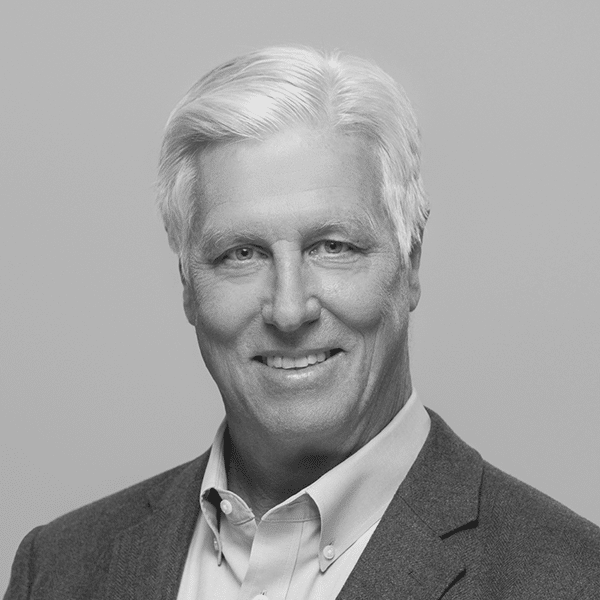There’s major money behind efforts to speed the next significant obesity company to the market.
First, it was Metsera, which launched in April with $290 million and a busy pipeline. Now it’s Kailera Therapeutics, with $400 million from Bain Capital Life Sciences, Atlas Venture, RTW and Lyra Capital.
Kailera isn’t a startup in the eyes of CEO Ron Renaud, who led a hepatitis C biotech, an mRNA startup and a neuroscience drug developer to multibillion-dollar sales to pharmaceutical companies.
“People are going to say, ‘Oh it’s another startup,’” said Renaud, who took the CEO role last month. “This isn’t a startup. It’s going to be a new company, but we’ve got an advanced, a truly advanced, clinically-validated portfolio of next-generation therapies for the treatment of obesity and obesity-related disorders.”
Kailera has snagged the exclusive rights for a suite of four experimental drugs for obesity and related conditions from Jiangsu Hengrui Pharmaceuticals, and the Boston-based drug developer will use Jiangsu Hengrui’s work in China to move straight into a global Phase 3 study in obesity.
Endpoints News first reported on the deal between the two companies in May, when Kailera was known as Hercules CM.
Its lead drug is an injectable GLP-1/GIP dual agonist, formerly known as HRS9531, which has already been in Phase 2 in obesity and type 2 diabetes in China. Kailera renamed the drug KAI-9531.
Straight into Phase 3
Kailera will work “as quickly” as it can to get the global Phase 3 up and running, Renaud said, but declined to disclose specific timelines. The company needs to speak with international regulators about the trial design, he said, including whether the trial will need to be a head-to-head against Novo Nordisk’s semaglutide, Eli Lilly’s tirzepatide, or both.
Many of the large pharmaceutical companies and a cohort of smaller biotechs are looking to get into the obesity market through GLP-1-based regimens or with next-generation drugs using different mechanisms.
With Novo and Lilly’s GLP-1s already deeply entrenched, it will likely be a steep challenge for newer entrants like Kailera and Metsera, which released its first Phase 1 data on a long-acting GLP-1 injectable last week. Metsera plans to begin a Phase 2b by the end of this year and could get into Phase 3 by the end of 2025, former CEO Clive Meanwell has told Endpoints.
Both Metsera and Kailera believe there’s still a chance for newer entrants.
“This is a massive market that is still not completely addressed,” Renaud said.
Renaud is familiar with the high stakes. He led Cerevel as it worked on a similar schizophrenia drug as Karuna Therapeutics. Bristol Myers Squibb bought Karuna for $14 billion a few weeks after AbbVie said it would acquire Cerevel. The FDA approved Bristol Myers’ drug last week.
Beyond the GLP-1 injectable, Kailera has an oral GLP-1 receptor agonist, a GLP-1/GIP/glucagon tri-agonist (or triple-G) and an oral form of its lead injectable from Hengrui.
Hengrui is slated to begin a healthy volunteer study of the triple-G in early 2025, and Kailera anticipates starting its own trial of the drug (KAI-4729) on a “similar time frame,” Renaud said.
Kailera is working with external contract drug manufacturers and “all options are on the table” as it heads toward Phase 3 and potentially commercialization. That could include building or buying manufacturing sites, he said. Novo and Lilly have spent billions to buy and build sites as their Wegovy and Zepbound franchises have outstripped supply.
 John Milligan
John MilliganWhile the company has $400 million in commitments, Renaud acknowledged the obesity drug development landscape is “not an inexpensive endeavor.” Kailera paid $110 million to Hengrui.
Whether an IPO is the next financing step has not been determined yet, he said.
The 25-employee company will quickly double or triple in staff by the second quarter of next year, the CEO said. Renaud’s C-suite already includes chief medical officer Scott Wasserman, who was previously CEO of pain drug developer Latigo. It also includes technical chief Doug Bakan, operating and business chief Paul Burgess (also from Cerevel and Translate Bio), and chief people officer Paula Cloghessy. Ex-Gilead CEO John Milligan is the chair.